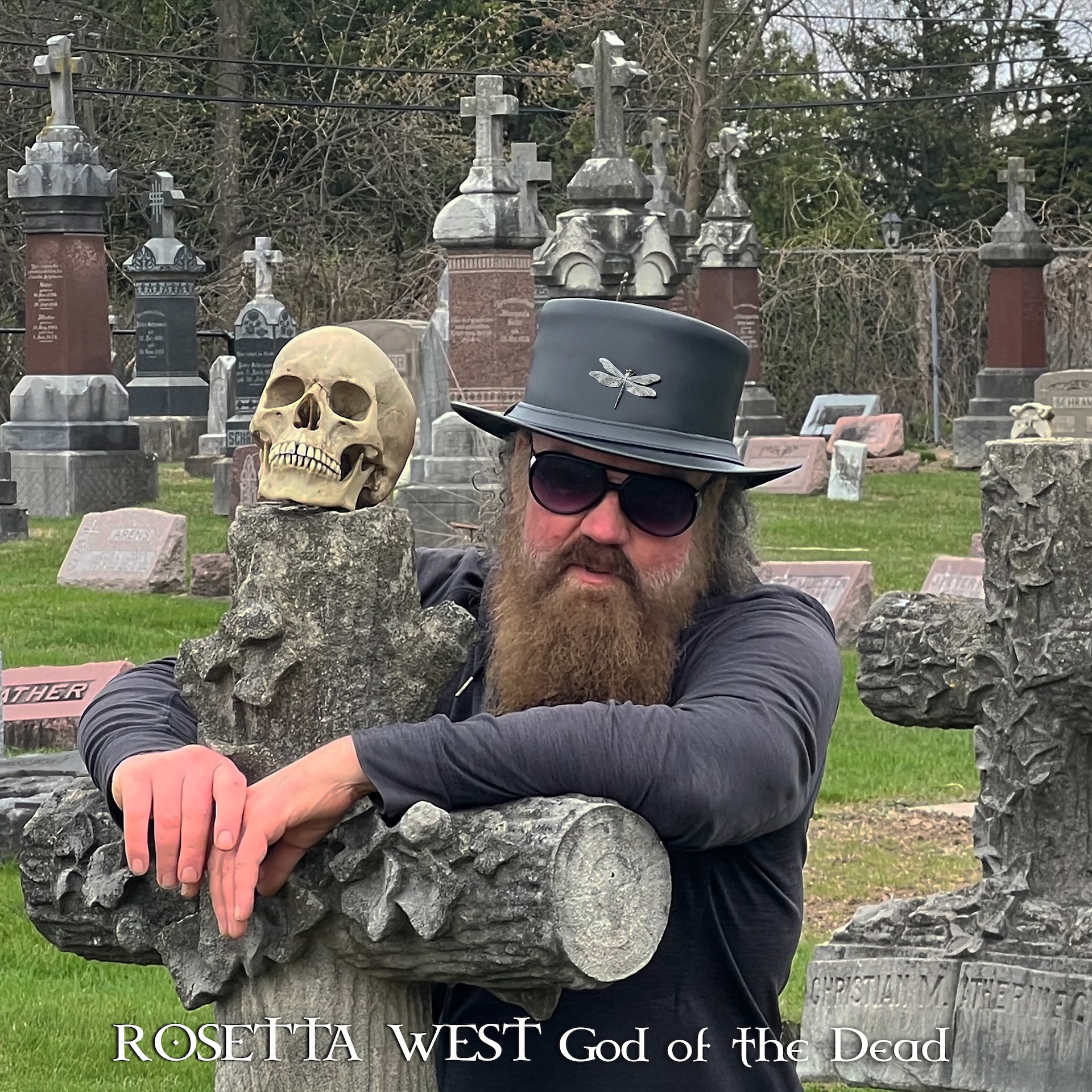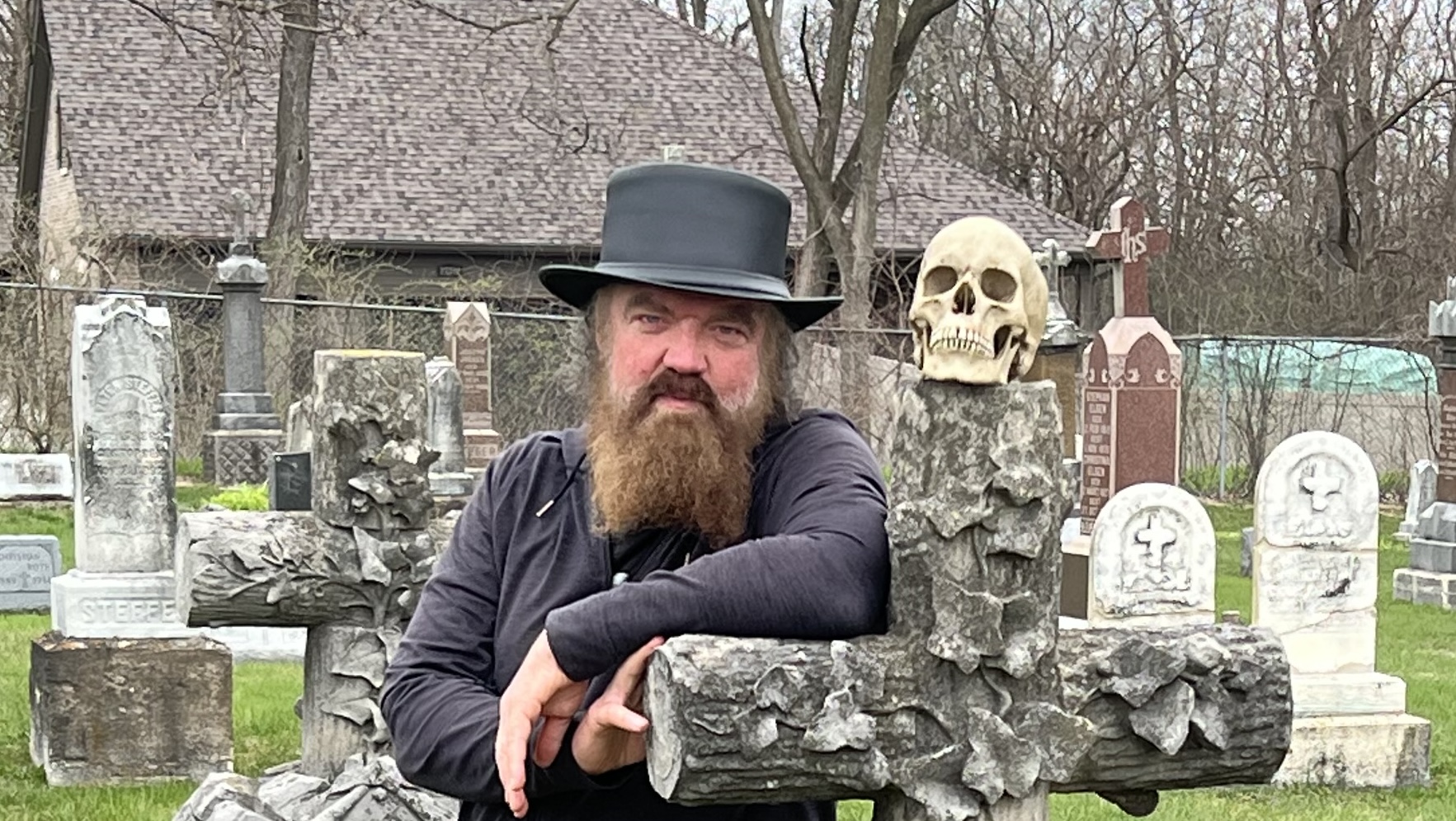In an era where much of modern rock feels polished to a fault, Rosetta West returns with something truly rare—an album that feels unfiltered, untamed, and entirely true to its vision. Their latest release, God of the Dead, is a sprawling, genre-bending journey that refuses to be boxed in, yet somehow remains cohesive and emotionally gripping throughout. It’s the kind of work that demands your full attention, and if you give it the time, you’ll likely come away both impressed and haunted.

Hailing from Illinois, Rosetta West has built a reputation over the years as a fiercely independent blues rock outfit with a taste for the mystical and the experimental. Their sound often merges psychedelic flourishes and folk traditions with gritty blues-rock foundations. On God of the Dead, that identity is pushed even further into uncharted territory, resulting in an album that is rich with variety but never loses its emotional or sonic thread.
If you came looking for a straight-up rock record, this may throw you off balance—but that’s exactly the point. From the moment the album begins, it’s clear that Rosetta West is aiming for something more ambitious. You’ll find elements of strange blues rock, punk and funk, acoustic introspection, piano-driven ballads, and feedback-drenched instrumentals. Each track feels like a different scene in the same dream—a little surreal, sometimes raw, but always deeply felt.
Musically, God of the Dead covers a lot of ground, but it never feels scattered. There’s a vision at work here, and it pulses through each song. Whether it’s the stomping rhythms of “Boneyard Blues” (featuring guest drummer Caden Cratch) or the emotional piano moments that appear unexpectedly, the album has a certain gravity to it. It may be sprawling—certainly more expansive than their previous release, Gravity Sessions, which was tight and concise—but the ambition pays off.
At the heart of the album is Joseph Demagore, the band’s founder and primary songwriter. He handles vocals, guitar, and piano duties with a raw intensity that can shift from fragile to ferocious in a heartbeat. There’s a lived-in quality to his voice and lyrics, one that reflects the band’s underground legacy and spiritual themes. You get the feeling that Demagore isn’t performing so much as channeling something—whether it’s memory, mystery, or madness, it’s powerful.

The rhythm section is rock solid, thanks to the contributions of Mike Weaver and Nathan Q. Scratch on drums. Both bring different energies to the table, helping to shape the album’s ever-shifting tone. Bassist Orpheus Jones, a longtime Rosetta West veteran, brings depth and grit, especially on the heavier, bluesier cuts. Special mention should go to guest bassist Louis Constant, who lends a soulful low end to “Midnight,” one of the album’s standout tracks.
Lyrically, God of the Dead doesn’t shy away from exploring the mystical, the existential, and the mythic. There are references to decay and transcendence, to spirits and rituals, but also to the real human emotions that bind us—loss, longing, defiance, and hope. The album title itself hints at an epic spiritual journey, and the music reflects that with both grandeur and intimacy.
Rather than trying to impress with polished radio-ready hooks, Rosetta West invites you into a world that feels half-buried and half-awake, like you’ve stumbled into a forgotten ceremony. This isn’t background music—it’s meant to be experienced.
There’s no denying that God of the Dead is a challenging listen at times. Its length and stylistic shifts require patience and open ears. But that’s part of its strength. In a music world often driven by algorithms and short attention spans, this album stands as a bold reminder of what can happen when an artist follows their vision to the edge—and then steps over it.
Rosetta West might not be a household name, but they’ve quietly cultivated a dedicated international following through their many non-Spotify releases—available on Bandcamp, YouTube, and in some delightfully obscure locations like haunted shipwrecks and graveyards (no, really). God of the Dead only adds to their legend. It’s a record that feels alive in all the right ways—messy, mystical, deeply personal, and wholly uncompromising.
God of the Dead isn’t just an album—it’s a ritual, a storm, a spell. It may not be for everyone, but for those willing to meet it on its terms, it offers a rare and rewarding experience. This is Rosetta West at their most ambitious and most authentic. And in a world flooded with forgettable content, that’s something worth celebrating.
Follow Rosetta West on
